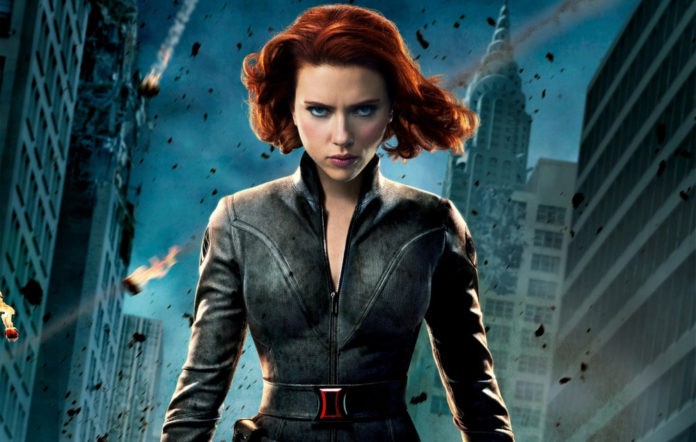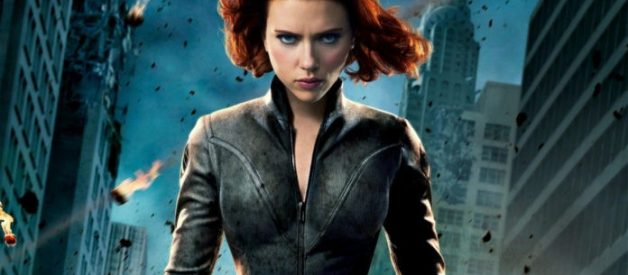From the ?Strong Female Character? to the Cool Girl
 Source: NME.com
Source: NME.com
Whenever I watch a new show, movie, or even read a book, I find myself wondering if the female characters are going to be actual, you know, characters. Even today, writers still struggle with how to portray women as real people ? half the time, female characters seem to end up falling into one sexist trope or another.
I think it?s fair to say that most writers don?t set out to display their female characters this way???it?s usually accidental, but it can still send the wrong message. Whether you?re a writer looking to flesh out your characters or a critical audience member, here are five sexist female tropes you should keep your eyes peeled for:
The Strong Female Character (Who Doesn?t Really Do Anything)
It might seem ironic to say that a strong female character can be sexist, but it?s true. As it turns out, there are strong female characters and strong characters who happen to be female.
There are plenty of women on the screen or in books who are legitimately badass, and their actions reflect that. Consider Katniss Everdeen from The Hunger Games ? most people would probably agree that she?s a tough character. There?s plenty of evidence to back that claim up: she wins a bloodthirsty fight to the death (twice) and takes down an evil dystopian government. Princess Leia is another example. Although she isn?t the main character in Star Wars, she plays a crucial role in taking down the Dark Side and her actions help move the plot forward. She?s certainly no damsel in distress.
In comparison, there?s Black Widow from The Avengers. Even after several movies, she?s not nearly as fleshed out as her male counterparts. She occasionally kicks ass, but when it?s time to move the plot forward or develop a character, she?s never front and center. Even in her skin-tight catsuit, she still fades into the background. Yet, the audience is still expected to consider Black Widow to be progressive female representation even though she rarely steps into that role.
The difference between characters like Leia or Katniss and Black Widow is depth. Katniss and Leia are both strong, but their entire personalities aren?t built around that stereotype. At the end of the day, they?re meant to be real characters with all the same flaws and emotions as anybody else.
Black Widow, on the other hand, seems to lack the same range as her male counterparts. The Marvel franchise has been so focused on making her an idealized form of ?strong? female representation that they?ve forgotten to make her a person at all.
This is where this trope falls flat. Audience members, specifically women, aren?t interested in seeing ?strong? female characters who feel like cardboard cutouts. I?d much rather watch Katniss become terrified, or confused, or show any kind of emotion than watch Black Widow beat up a bunch of bad guys with the same blank expression.
The ?strong female character? trope can sometimes have good intentions, but the message it really sends is that real, ordinary women aren?t interesting enough ? they must lack flaws and weaknesses in order to be worth watching.
Every Girl Just Wants To Be a Bride and a Mother
This sexist trope tends to rear its head in television shows (especially sitcoms), where we follow a character?s journey for several years. Consider the TV show, Friends. At the end of its tenth season, the show?s three main female characters are all saddled with a man or baby. Phoebe is newly-married, Rachel has a child and leaves her dream job behind to be with Ross, and Monica has just adopted twin babies with Chandler.
There?s nothing wrong with letting a female character have a child or get married, but it?s easy for writers to make that a woman?s primary goal in life. You?ll notice that there are plenty of sitcoms or TV shows that don?t end before their women are married off (and possibly toting a baby around).
For example, both Pam and Angela from The Office get married, Robin and Lily from How I Met Your Mother also both end up hitched, and even the women of The Big Bang Theory are starting to pop out kids. Some of these are great sitcoms with interesting characters, but they still end up following a disturbing pattern: a woman?s journey isn?t done until she?s married or has a kid.
Male characters can also end up married or fathering children, but it isn?t an unspoken rule. Nobody blinks an eye when a character like Joey from Friends ends the show without getting hitched or knocking anyone up.
The Angry Black Woman
This trope can sometimes overlap with the ?strong female character?, but it exclusively applies to women of color. Even more so than white women, female black characters are often pushed to the side or used as props for the plot. When they do get screentime, they might get portrayed as ?angry? or ?irrational? in comparison to white characters.
The Angry Black Woman trope dates all the way back to the 1930s with programs like Amos ?n Andy and characters like Mrs. Sapphire Stevens. Not only is the ?Angry Black Woman? trope poor representation, but it also sends the racist message that black people are ill-tempered, hostile, or even ignorant.
The ?You?re Not Like Other Girls? Girl
If a man in a movie or book ever tells a woman that she?s ?not like other girls?, it?s usually a sign that sexism is afoot. On the surface, this phrase sounds like a compliment.
She?s not like other girls. She?s cool. She?s one of the bros. She probably likes video games and beer and watches sports instead of dumb reality TV shows. Cameron Diaz?s character from There?s Something About Mary is the embodiment of the cool girl. Megan Fox?s character from the Transformers movies is another great example.
These women denounce ?feminine? things in favor of masculine hobbies or interests. However, despite liking masculine things, these characters are still meant to be male eye-candy. Megan Fox?s character in the Transformers might be interested in fixing cars and talking about sports, but she?s going to do it in a skimpy tank-top, not a baggie hoodie.
The message that this trope sends out is troubling. Not only does it usually objectify women, but it argues that traditionally feminine hobbies or interests are wrong. To grab the attention of men and separate yourself from the pack, you have to denounce anything that makes you feminine.
Fat women can never just be women
Although any plus-sized character in movies or TV shows tends to get a bad rap, fat women have it particularly bad. Consider Melissa McCarthy?s character in almost everything she?s done or Rebel Wilson in Pitch Perfect. Not only are they sidekicks, but their entire personality is obsessed with their weight.
If you took a shot every time Rebel Wilson made a self-deprecating fat joke in Pitch Perfect, you?d probably end up with alcohol poisoning.
Fat female characters don?t always get character development, but when they do, it?s usually related to their weight. Fat characters rarely get to just be people who have all the same hopes and dreams as any thin person.
It?s fair to say that the way fat characters are treated in movies and TV shows can send a sexist message. It preaches that only certain body types are worthy of romantic love while others are only worthy of being the comic relief.
There are plenty of sexist female tropes out there, but these five tend to show up a lot ? and it?s troubling when they go unnoticed. It?s important to remember that these sexist tropes don?t just stick to the screen ? they can bleed into real life. All too often, people in the real world expect black women to be ?irrational? or treat fat people like nothing more than a punch line.
The next time you watch a movie, sit down to enjoy your favorite show, or even read a book, try using a critical eye ? you might be surprised how often these tropes show up.


